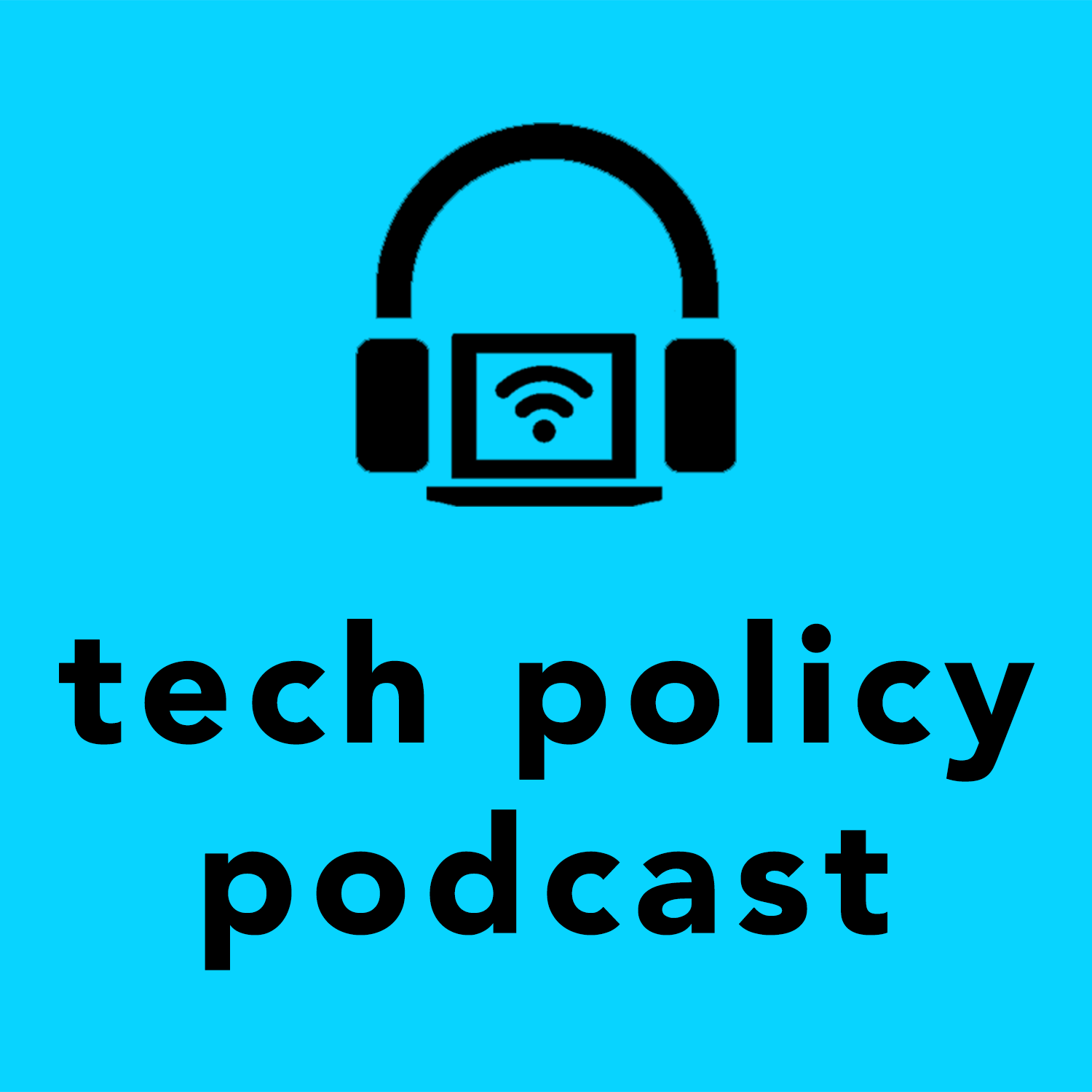Episodes

Wednesday Feb 17, 2016
#24: Apple v FBI: Unlocking the iPhone
Wednesday Feb 17, 2016
Wednesday Feb 17, 2016
Apple made headlines today by refusing to comply with a federal judge’s order to unlock the iPhone of Syed Rizwan Farook, one of the San Bernardino attackers. In an open letter to customers, Apple CEO Tim Cook explained the importance of strong data security and the dangerous precedent that would set by forcing the company to unlock the phone. Evan and Berin discuss the 1789 All Writs Act, which the FBI claims requires Apple to provide “reasonable technical assistance.” Should that include compromising the security of devices? Are we heading down a slippery slope? And how will the court fight play out?

Tuesday Feb 16, 2016
#23: Getting SLAPPed for Online Speech
Tuesday Feb 16, 2016
Tuesday Feb 16, 2016
Online free speech is critical to companies like Yelp and TripAdvisor whose business models depend on consumer reviews. But companies often don’t like what they see on those sites, and can use strategic lawsuits against public participation (SLAPPs) to discourage people from sharing their opinions online. Without anti-SLAPP laws, consumers might end up spending huge sums on legal fees to defend their speech, even when the lawsuits are frivolous. Evan is joined by Moriah Mensah, a recent graduate of Howard University School of Law and a policy intern at the R Street Institute. They discuss the problems with SLAPPs and whether reform efforts like the SPEAK FREE Act will be effective.
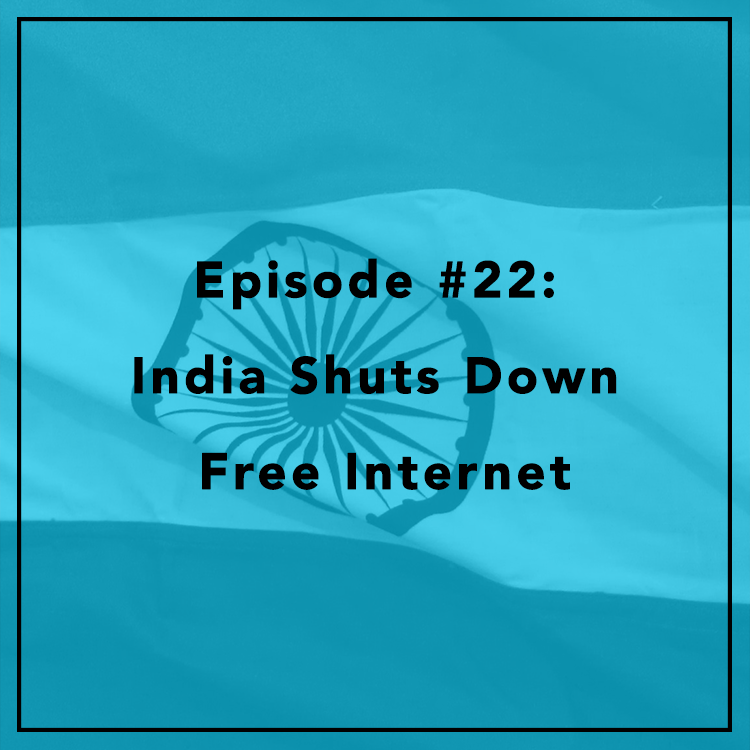
Friday Feb 12, 2016
#22: India Shuts Down Free Internet
Friday Feb 12, 2016
Friday Feb 12, 2016
This week, India shut the door on Free Basics, a Facebook program that offers free, limited Internet access to people in the developing world. While some activists are hailing the decision as a victory for net neutrality, proponents of zero-rating programs like Free Basics note that 80% of Indians still lack Internet access, and shutting down Facebook’s offering won’t help get them online. Evan and Berin discuss the regulator’s decision, and ask: why didn’t the regulator actually address the challenge of getting Indians online? Can zero-rating actually provide an on-ramp to the full Internet?
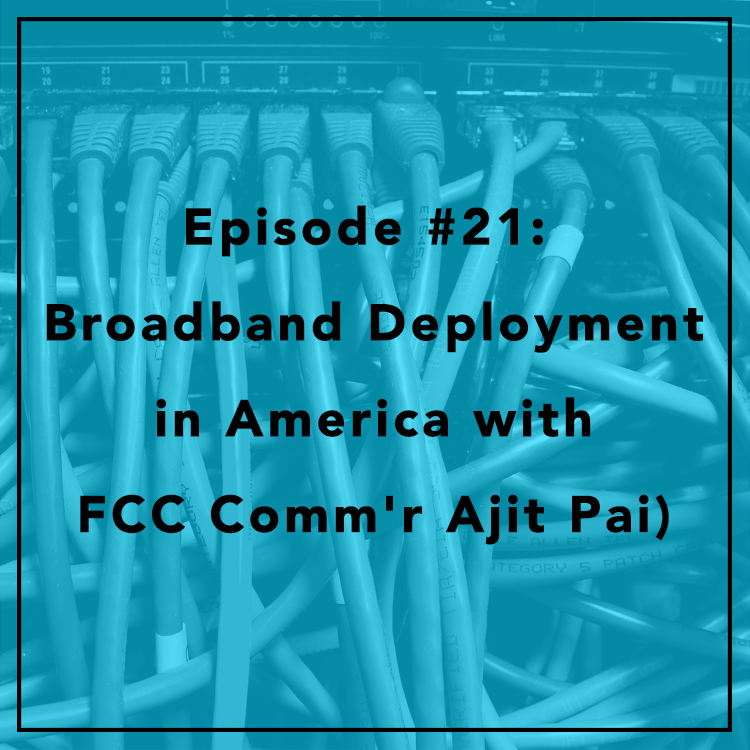
Thursday Feb 11, 2016
#21: Broadband Deployment in America with FCC Comm'r Ajit Pai
Thursday Feb 11, 2016
Thursday Feb 11, 2016
Is broadband being deployed in a “reasonable and timely manner” in the United States? From 1998 on, the FCC always said yes. But in 2010, the FCC abruptly reversed course, declaring market failure. The agency immediately used those findings to increase its authority and justify more Internet regulation. Special guest FCC Commissioner Ajit Pai joins the show to discuss the state of broadband in America, why the FCC ignores the good news on deployment, and the increasing politicization of a supposedly independent agency.
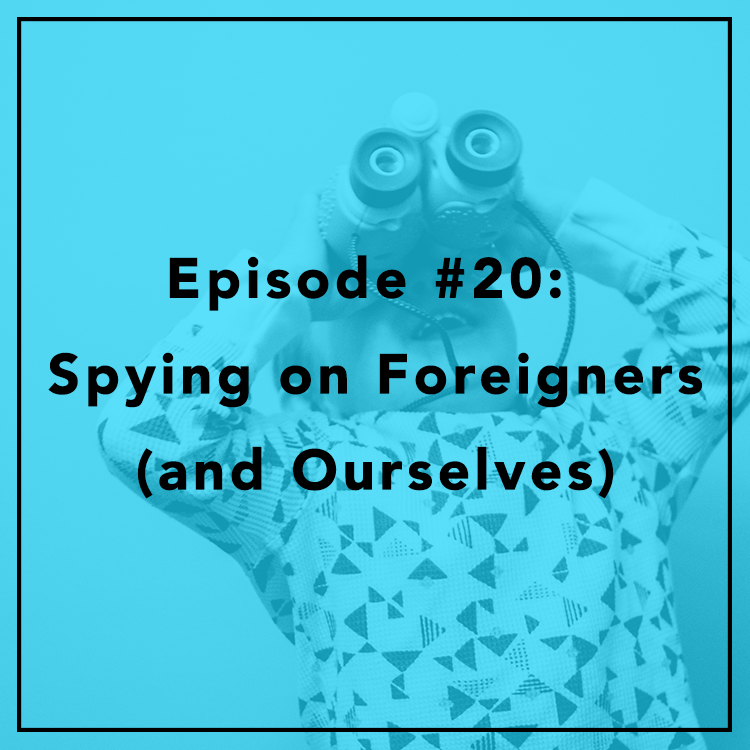
Wednesday Feb 10, 2016
#20 - Spying on Foreigners (and Ourselves)
Wednesday Feb 10, 2016
Wednesday Feb 10, 2016
Section 702, a US foreign surveillance program, is set to expire at the end of 2017. While privacy advocates are crying out for reform or repeal, intelligence agencies say this could hamper their counter-terrorism efforts. Evan is joined by Nathan Leamer, a policy analyst at the R Street Institute. They discuss the effectiveness of foreign surveillance, how Congress oversees intelligence agencies, and what oversight reform should look like.
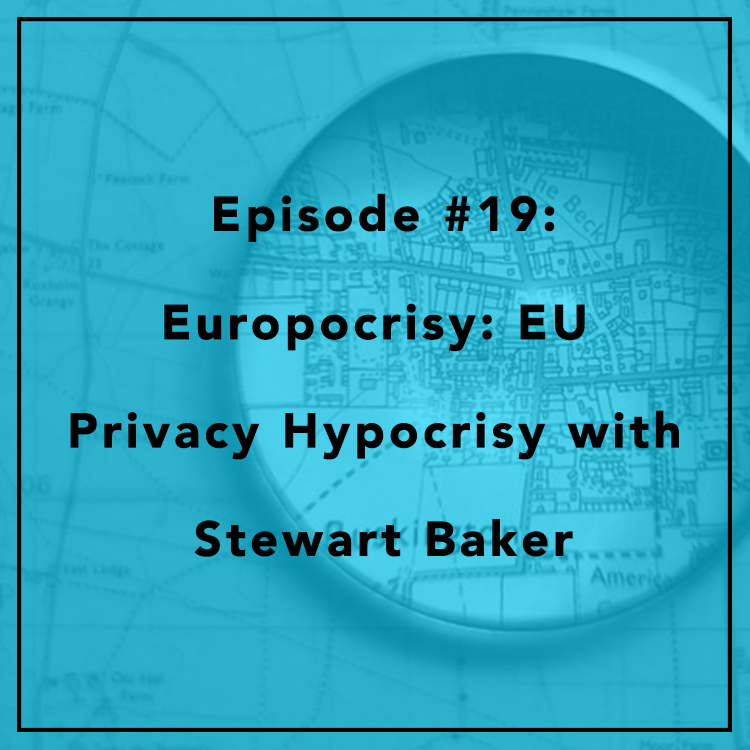
Tuesday Feb 09, 2016
#19: Europocrisy: EU Privacy Hypocrisy with Stewart Baker
Tuesday Feb 09, 2016
Tuesday Feb 09, 2016
On surveillance, is Europe unfairly picking on the United States? The Snowden leaks focused outrage on the NSA, but some experts say that the European Union and privacy advocates should focus on the real offenders like Russia and China — and argue that Europe’s surveillance and law enforcement agencies may have even easier access to Europeans’ data than is true in the U.S. Evan is joined by Stewart Baker, a partner at Steptoe & Johnson and formerly the Assistant Secretary for Policy at the Department of Homeland Security. They discuss transatlantic data flows, what the EU has in common with North Korea, and Stewart’s proposed Europocrisy prize.
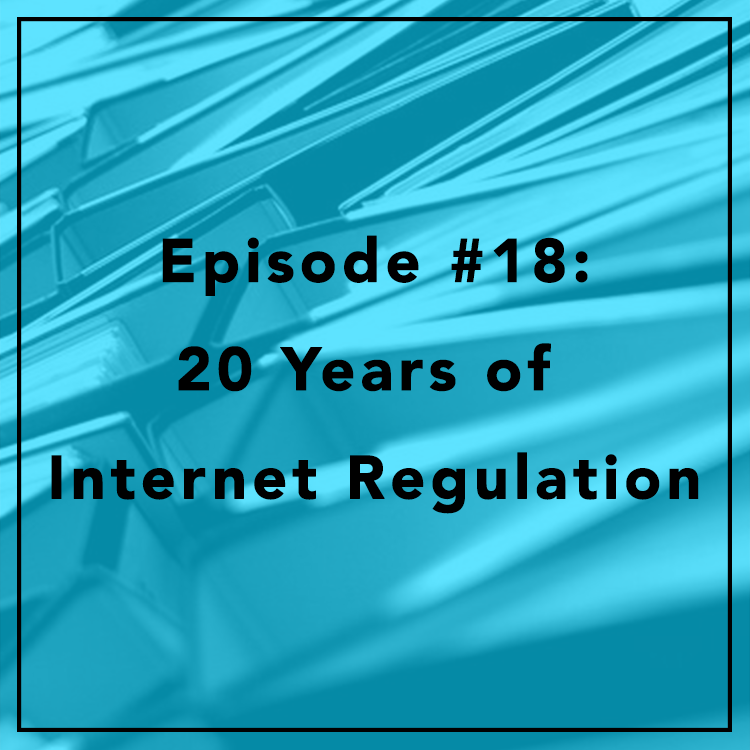
Monday Feb 08, 2016
#18: 20 Years of Internet Regulation
Monday Feb 08, 2016
Monday Feb 08, 2016
The 1996 Telecom Act turned twenty today — and was obsolete even before the ink was dry. Congress has tried and failed to update it, leaving the FCC to struggle with outdated technological silos and try to “modernize” the Act on its own. Big questions surrounding FCC censorship, broadband competition, and Internet regulation remain unanswered. Berin and Evan discuss what the Act got right, what it got wrong, and what a #CommActUpdate should look like.

Friday Feb 05, 2016
#17: E-Cigarettes
Friday Feb 05, 2016
Friday Feb 05, 2016
The swift rise of vaping has given many smokers a safer alternative to tobacco products, but regulations and taxes could slow this growth — or even put the industry out of business. Evan is joined by Paul Blair, State Affairs Manager for Americans for Tax Reform. They discuss the public health benefits of vaping and how governments are reacting to this disruptive technology.
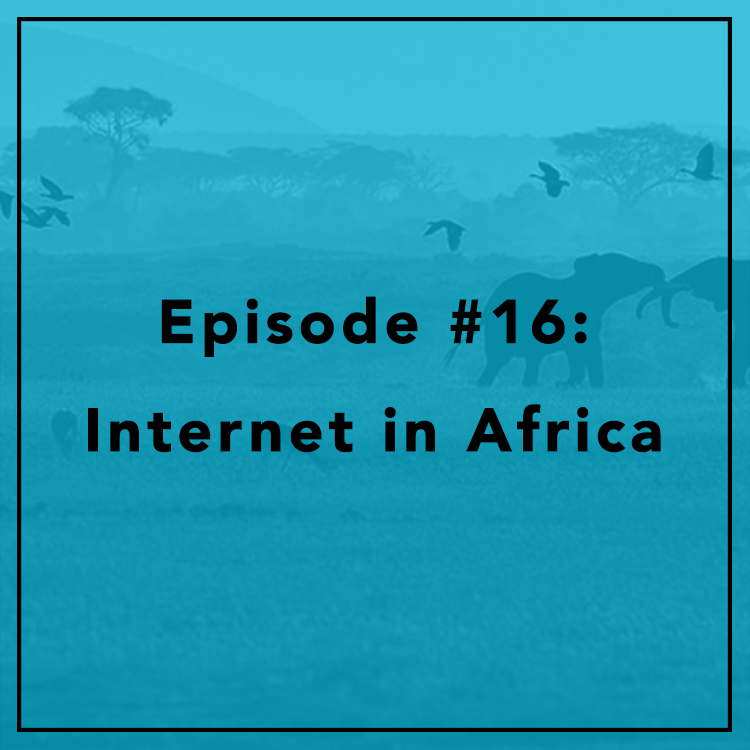
Friday Feb 05, 2016
#16: Internet in Africa
Friday Feb 05, 2016
Friday Feb 05, 2016
With the success of the Internet in the United States, it’s easy to forget that 4 billion people around the world still lack access, including 80% of Africa. Evan is joined by Evelyn Smith, a research associate at the American Enterprise Institute and co-editor of TechPolicyDaily.com. They discuss mobile deployment in Africa, the role of regulation and censorship, and what net neutrality means to the developing world.

Wednesday Feb 03, 2016
#15: Email Privacy
Wednesday Feb 03, 2016
Wednesday Feb 03, 2016
How private are your emails? The answer may surprise you, as the law that governs much of our electronic privacy was written in 1986! It’s so outdated that law enforcement and government agencies can often read your emails without a warrant, despite Constitutional protections. Evan is joined by Chris Calabrese, Vice President for Policy at CDT. They discuss email privacy reform, why it’s stalling in Congress despite widespread support, and what states are doing to reform surveillance in the absence of federal action.

